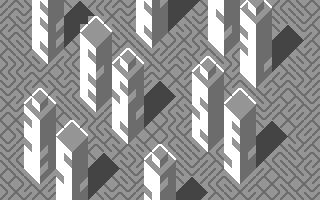
LEARNING OUTCOMES
On successful completion of this course, students will be able to:
- Link past technological phenomena to contemporary new media
- Work with dead media platforms
Other learning outcomes depend on the particular implementation that changes every year.
Credits: 3
Schedule: 09.05.2022 - 13.05.2022
Teacher in charge (valid for whole curriculum period):
Teacher in charge (applies in this implementation): Markku Reunanen
Contact information for the course (applies in this implementation):
CEFR level (valid for whole curriculum period):
Language of instruction and studies (applies in this implementation):
Teaching language: English. Languages of study attainment: English
CONTENT, ASSESSMENT AND WORKLOAD
Content
valid for whole curriculum period:
The actual contents varies depending on the year and teacher, but there is always a historical communication/software/hardware-related topic that is analyzed, connected to contemporary phenomena and experienced first-hand.
Assessment Methods and Criteria
valid for whole curriculum period:
An intensive week of lectures and hands-on assignments. 80% attendance and completed assignments are required to pass the course.
Workload
valid for whole curriculum period:
35 hours of contact teaching, independent work 10 hours, 3 ECTS
DETAILS
Study Material
valid for whole curriculum period:
Published on MyCourses throughout the course. Other possible reading material according to the theme.
Substitutes for Courses
valid for whole curriculum period:
Prerequisites
valid for whole curriculum period:
FURTHER INFORMATION
Further Information
valid for whole curriculum period:
The course can be taken multiple times, as there is a different topic each year.
Teaching Period:
2020-2021
(2021, 2022) - No teaching
Course Homepage: https://mycourses.aalto.fi/course/search.php?search=DOM-E512401
Registration for Courses: Sisu replaces Oodi on 9 August, 2021. Priority order to courses is according to the order of priority decided by the Academic committee for School of Arts, Design and Architecture: https://www.aalto.fi/en/services/registering-to-courses-and-the-order-of-priority-in-aalto-arts
In Weboodi, at the latest one week before the course starts
The order of priority for admitting students to courses at Aalto ARTS 1.1.2018 onwards (approved by The Committee of Arts, Design and Architecture on 10.10.2017)
The order of priority is as follows:
- students for whom the course is compulsory for their major/programme and who have scheduled it for the current academic year in their personal study plan (HOPS);
- exchange students for whom the course is a part of his/her officially approved learning agreement and scheduled to be taken during the current semester;
- students for whom the course is compulsory for their major/programme and who have not completed it yet;
- students, for whom the course is part of his/her major s or programme s alternative studies and has been scheduled in the student's PSP (HOPS) for the current academic year
- students, for whom the course is part of his/her major s or programme s alternative studies and who have not completed the requisite number of credits for alternative studies yet;
- students for whom the course is compulsory for their minor;
- students, for whom the course is part of his/her minor subject s alternative studies and who have not completed the requisite number of credits for alternative studies yet;
- students who have applied for the course through a student mobility scheme (internal mobility within Aalto University, flexible study right (JOO) studies etc.);
- other students.
Courses that are intended to be multidisciplinary (e.g. UWAS courses) may apply an order of priority based on the learning outcomes of the course, while bearing in mind the university obligation of enabling students to complete their degrees within the normative duration of study set for the degree. The order of priority does not apply to courses organised by the Centre for General Studies or doctoral courses.
This decision on the order of priority does not influence the right of the teacher to define prerequisites for the course.
